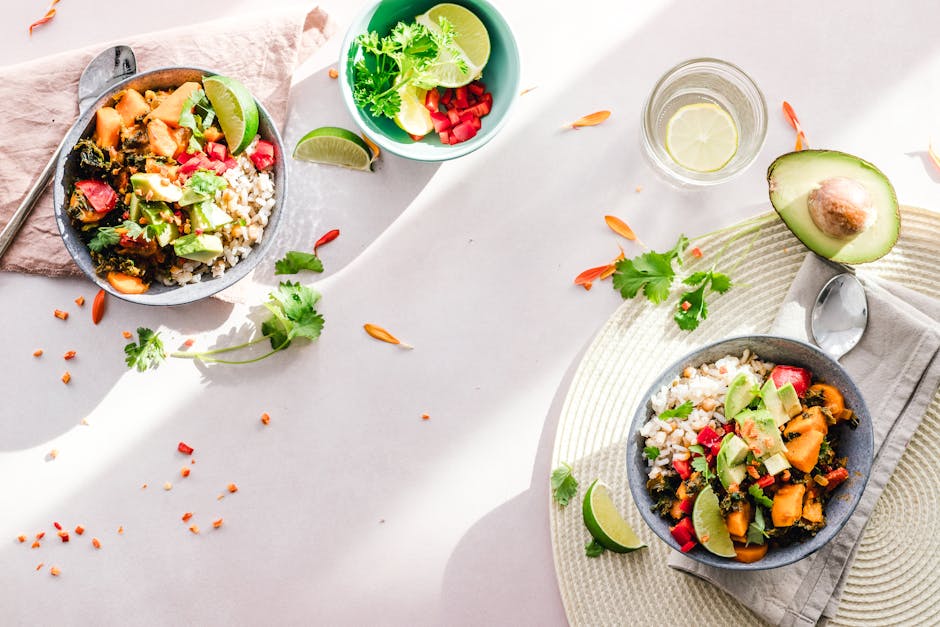Introduction to Holistic Diet Plans
A holistic diet is all about eating with a purpose — the purpose of fueling your body, mind, and spirit in a way that promotes overall health. Think of it as nurturing your whole self, not just shedding pounds or hitting a number on the scale. This approach doesn't just ask, "What am I eating?" but also, "Why am I eating it?" and "How does it benefit me?"
In a holistic diet, every bite counts towards your physical health, mental clarity, and emotional well-being. Instead of zeroing in on calorie counts or carb grams, the focus is on the quality of the foods. We’re talking fresh, unprocessed, and naturally nourishing. That means lots of veggies, fruits, whole grains, lean proteins, and healthy fats. It’s about balance and variety, ensuring that your body gets all the nutrients it needs to function at its best.
Why does it matter? Because food is not just fuel. It's information for our bodies. Nutrient-rich foods can reduce inflammation, boost your mood, and improve your energy levels, making you feel vibrant and alive.
So, when we talk about a holistic diet, we're not offering a quick fix. It's a lifestyle. One that respects your body’s needs and recognizes that a healthy diet is a key to a more fulfilling life.

The Science Behind a Holistic Approach to Eating
A holistic approach to eating focuses on the whole picture, emphasizing natural foods, balance, and the connection between mind, body, and spirit. Here's the deal - diets aren't just about losing a few pounds; it's about your overall health. When you eat whole foods - we're talking fruits, vegetables, whole grains, nuts, and seeds - your body gets the essential nutrients it craves. This isn't just about getting the right mix of carbs, proteins, and fats. It's about feeding every part of you. Think about it - when your body gets what it needs, you have more energy, your mood improves, and yes, you manage your weight more effectively. It's a chain reaction. Healthy foods lead to a healthier gut. A healthier gut means better digestion and absorption of nutrients. And when your body absorbs nutrients well, it works like a well-oiled machine. This approach takes patience. You won't see overnight success, but the benefits are worth it. Eating holistically isn't a quick fix. It's a lifestyle change. And science backs it up. Studies show that whole foods can reduce the risk of heart disease, diabetes, and certain cancers. So, the idea is simple - eat food that nourishes every part of you. That's the real secret behind a holistic diet. No magic pills, just real, good food.
Key Components of a Holistic Diet Plan
A holistic diet plan isn't just about losing weight; it's about feeding your body and mind the right things for overall health. At its core, a holistic diet focuses on natural foods, cutting out processed and artificial items. Here's what makes up the foundation of a holistic diet plan:
- Whole foods: Think fresh fruits, vegetables, whole grains, nuts, and seeds. These foods are rich in nutrients and fiber, which are essential for your body to function properly.
- Quality protein sources: Incorporate lean meats, poultry, fish, and plant-based proteins like beans and lentils. Protein is key for muscle repair and growth.
- Healthy fats: Not all fats are bad. Your body needs fats from sources like avocados, olive oil, and nuts for energy and to absorb vitamins.
- Hydration: Drinking enough water is crucial. It aids in digestion, flushes out toxins, and keeps your skin healthy.
- Mindful eating: This is about being present while you eat, enjoying every bite, and listening to your body's hunger and fullness signals.
By focusing on these components, a holistic diet supports not just weight loss but also nurtures your physical, emotional, and spiritual well-being. Remember, it's about making sustainable changes, not seeking quick fixes.
How Holistic Diet Plans Promote Sustainable Weight Loss
Holistic diet plans are all about eating whole foods. Think fruits, vegetables, grains, and lean proteins. This approach isn't just about dropping pounds quickly; it's about changing your relationship with food. By focusing on nutrient-rich foods, your body gets the fuel it needs without empty calories. This way, you're less likely to feel hungry soon after eating. Another key point is mindfulness. Holistic diets encourage being present while eating. This means paying attention to what you eat, how much you eat, and even how you feel when you eat. It's not just what's on your plate but how you eat it that matters. Over time, this teaches you to listen to your body's cues, helping you eat only when you're truly hungry and stop when you're full. Plus, holistic diets often involve cutting down on processed foods. These foods can mess with your body's natural hunger signals and are linked with weight gain. By focusing on whole foods, your body starts to crave healthier options, making sustainable weight loss more achievable. In short, holistic diet plans work by promoting a healthier lifestyle, not just a number on the scale. They're about long-term changes that help you lose weight and keep it off, by eating well, being mindful, and understanding your body better.
The Role of Whole Foods in a Holistic Diet
Whole foods are the cornerstone of a holistic diet, steering clear of processed items and focusing on natural, unrefined foods. Think fruits, vegetables, whole grains, nuts, and seeds. These aren't just packed with essential nutrients but also fibers that keep you feeling full longer. This way, you're not just eating healthily but also likely to eat less, naturally aiding weight loss. Whole foods also help balance blood sugar levels, preventing spikes and crashes that can lead to overeating. Integrating a variety of these foods ensures your diet is rich in vitamins, minerals, and antioxidants, supporting overall well-being beyond just shedding pounds. It's simple: eat foods close to their natural state for the best results.
Integrating Mindfulness and Eating Habits
Mindful eating is about paying full attention to the experience of eating and drinking, both inside and outside the body. It involves noticing the colors, smells, textures, flavors, temperatures, and even the sounds of our bites and sips. By adopting this approach, you can better understand your hunger and fullness cues, leading to healthier eating patterns without strict restrictions. Here's how you can integrate mindfulness into your eating habits: First, start by eating slower. This gives your body the time it needs to recognize when it's full, reducing overeating. Next, appreciate your food. Take the time to appreciate the appearance and aroma before you start eating. Also, listen to your body. Eat when you're hungry and stop when you're satisfied, not stuffed. Last but not least, eliminate distractions. Turn off the TV and put away your phone. Focus on your meal and how it makes you feel. This mindful approach can transform your relationship with food, making your journey towards sustainable weight loss more enjoyable and fulfilling.
The Benefits of a Holistic Diet Beyond Weight Loss
Choosing a holistic diet does more than shrink your waistline. It's a game-changer for your overall health. First, it nudges your energy levels sky-high. Imagine waking up feeling like you've got a full battery. That's what eating whole, unprocessed foods can do. Next, it gives your skin that glow everyone talks about. We're talking fewer breakouts, more radiance. Then, there's the mood boost. Wave goodbye to those pesky mood swings. A balanced diet stabilizes your emotions, making you feel more even-keeled. Also, your sleep takes a turn for the better. No more tossing and turning, just peaceful, deep sleep. Lastly, it sharpens your focus. Forget foggy mornings. A holistic diet keeps your brain on point all day. So, yes, you'll likely lose weight, but the real win? A healthier, happier you from the inside out.
Challenges and Considerations in a Holistic Diet Plan
Adopting a holistic diet plan isn't just about swapping junk food for greens; it's a major lifestyle shift. Here's the straight talk: first, understanding what 'holistic' means is key—it's about considering the whole body, mind, and spirit, not just counting calories or carbs. Embracing this requires patience and commitment. One of the main challenges is accessibility. Finding quality, whole foods can be tough, especially if you live in a place where fresh, organic options aren't on every corner. Plus, let's be real, these foods often come with a higher price tag. Budgeting becomes a skill you'll need to sharpen. Then there's the time factor. Preparing fresh, whole meals takes more time than popping a frozen pizza in the oven. It means being mindful about what you eat, which can be a big adjustment from grab-and-go eating habits. Also, every person's body is unique. A diet that works wonders for one person might not do the same for another. It's all about finding what fuels your body best, which might mean some trial and error. Lastly, misinformation is rampant. Not every "health guru" on the internet knows what they're talking about. Digging into credible sources and maybe even consulting a nutritionist is smart. To sum it up: switching to a holistic diet plan is challenging but rewarding. It takes education, effort, and a pinch of creativity. But those who stick with it find it's a game-changer for health, well-being, and yes, sustainable weight loss.
Steps to Implementing a Holistic Diet Plan in Your Life
Starting a holistic diet plan is easier than you think, and it's not just about the food. It's a full lifestyle change that respects your body's needs. First, ditch processed foods. Go for whole, unprocessed foods instead. That means eating lots of fresh fruits and vegetables, whole grains, and lean proteins. Next, pay attention to your body. Eat when you're hungry and stop when you're full. Sounds simple, right? But it's a game-changer. Another step is to cut out the sugar. Not totally, but reduce it. Sugar is everywhere, so read those labels. Hydration is key. Drink plenty of water throughout the day. It helps with digestion and keeps you feeling full. Finally, move your body. Exercise complements your diet and boosts your mood and energy levels. So, eat whole foods, listen to your body, cut back on sugar, stay hydrated, and stay active. Follow these steps and you're on your way to a healthier you.
Conclusion: A Holistic Outlook on Health and Well-being
Embracing a holistic diet means viewing your health as a puzzle, where every piece - from the nutrients you fuel your body with to the way you move and rest - plays a vital role. It's not just about shedding pounds quickly; it's about lasting changes that benefit your entire system. This approach encourages you to listen to your body, giving it what it needs, when it needs it, and considering not just calories, but the quality and source of those calories. Remember, a holistic diet is more than a meal plan; it's a commitment to a healthier lifestyle. By prioritizing natural, nutrient-rich foods and integrating physical activity and stress management into your routine, you're not just aiming for a number on the scale. You're working towards a future where health and well-being are at the forefront of every choice you make. It's about finding balance, and in this balance, discovering the most vibrant version of yourself.

